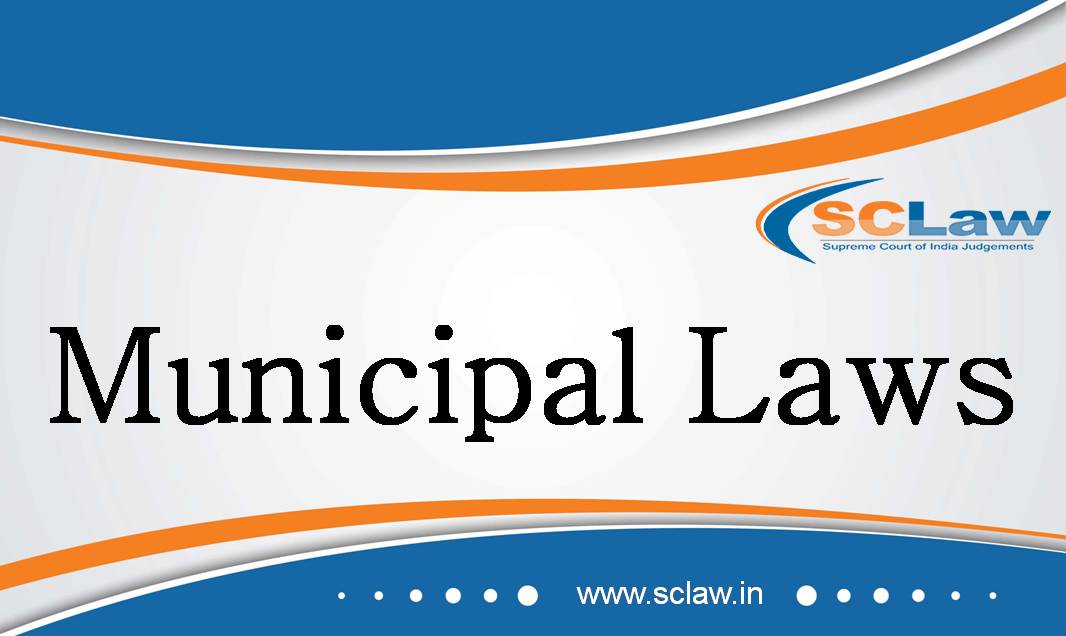Arbitration—Objections—Condonation of Delay—Delay beyond prescribed period of three months and further period of 30 days on satisfaction of court from date of passing award cannot be condoned. Arbitration—Objections—Limitation—Section 14 of Limitation Act is applicable to an application under S.34 of 1996 Act.
2019(1) Law Herald (SC) 17 : 2018 LawHerald.Org 1955 IN THE SUPREME COURT OF INDIA Before Hon’ble Mr. Justice Dr Dhananjaya Y Chandrachud Hon’ble Mr. Justice Vineet Saran Civil Appeal No.…
Injunction—Writ Petition under Article 227 challenging the orders passed by Civil Courts refusing to grant interim injunction under Order 39, Rules 1 and 2 of the CPC is very well maintainable.
2019(1) Law Herald (SC) 600 : (2019) AIR(SC) 231 : (2019) 1 Scale 140 2019 LawHerald.Org 621 IN THE SUPREME COURT OF INDIA Before Hon’ble Ms. Justice Indu Malhotra Hon’ble…
Constitution of India, 1950, Art.227–Writ of Habeas Corpus-Custody of Child–The Central aspect to be considered by the Court is whether the custody of child can be said to be unlawful or illegal and whether the welfare of child requires that the present custody should be changed and the child should be left in the care and custody of somebody else, depending on which appropriate directions can be passed
2019(1) Law Herald (SC) 575 : 2018 LawHerald.Org 2136 IN THE SUPREME COURT OF INDIA Before Hon’ble Mr. Justice A.M. Khanwilkar Hon’ble Mr. Justice Dr. D.Y. Chandrachud Criminal Appeal Nos.…
Redemption of Mortgage—Act of Parties—Mortgage can be redeemed even by the act of the parties—By act of receiving the mortgage amount and putting mortgagor back in possession, the mortgage is extinguished.
2019(1) Law Herald (SC) 562 : 2019 LawHerald.Org 604 IN THE SUPREME COURT OF INDIA Before Hon’ble Mr. Justice M.R. Shah Civil Appeal No. 1574 of 2019 [Arising out of…
Haryana Municipal Corporation Act, 1994, S.87–User Charges-Municipal Corporation is competent to levy user charges for the use of municipal drain for the flow of waste water from the tube wells by installed by private institutions-Such user charges which are as per diameter of tube well does not amount to fee for which prior approval of State government is required.
2019(1) Law Herald (SC) 555 : 2019 LawHerald.Org 603 IN THE SUPREME COURT OF INDIA Before Hon’ble Mr. Justice Dr. Dhananjaya Y. Chandrachud Hon’ble Mr. Justice Hemant Gupta Civil Appeal…
Murder—Common Intention—Conviction under section 34 cannot be made merely by altering the charge from S.302/149 to S.302/34, unless the charge under section 34 is proved by the leading evidence.
2019(1) Law Herald (SC) 538 : 2019 LawHerald.Org 601 IN THE SUPREME COURT OF INDIA Before Hon’ble Mr. Justice Abhay Manohar Sapre Criminal Appeal No. 1144 of 2009 Mala…
Quashing—Criminal complaints cannot be quashed only on the ground that the allegations made therein appear to be of a civil nature.
2019(1) Law Herald (SC) 532 : 2019 LawHerald.Org 599 IN THE SUPREME COURT OF INDIA Before Hon’ble Mr. Justice L. Nageshwara Rao Criminal Appeal No. 255 of 2019 (Arising out…
Summons—Revision under S 397(2) Cr PC against order of issue of process is maintainable Cognizance of Offence—While taking cognizance of an offence under Section 190 (1) (b) CrPC, the Magistrate does not has to record reasons for its satisfaction of sufficient grounds for issuance of summons
2019(1) Law Herald (SC) 511 : 2019 LawHerald.Org 598 IN THE SUPREME COURT OF INDIA Before Hon’ble Mrs. Justice Indira Banerjee Hon’ble Mrs. Justice R. Baumathi Criminal Appeal No. 224…
Rape–Medical certificate granted by the Doctor suggests that the Hymen was torn at 6’O clock position and the rugosity was lost–There was no reason for the poor girl to falsely implicate the accused. Rape–Defence cannot take advantage of bad investigation where there is clinching evidence available to the prosecution–Truthful version of the prosecutrix cannot be ignored.
2009(1) LAW HERALD (SC) 593 IN THE SUPREME COURT OF INDIA Before The Hon’ble Mr. Justice Tarun Chatterjee The Hon’ble Mr. Justice V.S.Sirpurkar Criminal Appeal No. 222 of 2009 (Arising…
Rape and Abduction–Accused contending that he had married the victim–No signature or thumb impression was obtained and the Kazi who is claimed to have solemenised the nikah was not examined–Conviction upheld.
2009(1) LAW HERALD (SC) 591 IN THE SUPREME COURT OF INDIA Before The Hon’ble Mr. Justice Dr. Arijit Pasayat The Hon’ble Mr. Justice Dr. Mukundakam Sharma Criminal Appeal No.100 of…













